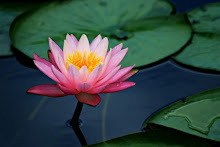
"1. All the modulations of the voice arise from the mind, and the various affections of the mind are produced by things (external to it). The affections thus produced are manifested in the sounds that are uttered. Changes are produced by the way in which those sounds respond to one another; and those changes constitute what we call the modulations of the voice. The combination' of those modulated sounds, so as to give pleasure, and the (direction in harmony with them of the) shields and axes[2[, and of the plumes and ox-tails[2], constitutes what we call music.
2. Music is (thus) the production of the modulations of the voice, and its source is in the affections of the mind as it is influenced by (external) things.
3. And so (they instituted) ceremonies to direct men's aims aright; music to give harmony to their voices; laws to unify their conduct; and punishments to guard against their tendencies to evil. The end to which ceremonies, music, punishments, and laws conduct is one; they are the instruments by which the minds of the people are assimilated, and good order in government is made to appear.
4. All modulations of the voice spring from the minds of men. When the feelings are moved within, they are manifested in the sounds of the voice-; and when those sounds are combined so as to form compositions, we have what are called airs. Hence, the airs of an age of good order indicate composure and enjoyment. The airs of an age of disorder indicate dissatisfaction and anger, and its government is perversely. (The note) kung represents the ruler; shang, the ministers; kio, the people; kih, affairs; and yü, things. If there be no disorder or irregularity in these five notes, there will be no want of harmony in the state. If kung be irregular, (the air) is wild and broken; the ruler of the state is haughty. If shang be irregular, (the air) is jerky; the offices of the state are decayed. If kio be irregular, (the air) expresses anxiety; the people are dissatisfied. If kih be irregular, (the air) expresses sorrow; affairs are strained. If yü be irregular, (the air) is expressive of impending ruin; the resources (of the state) are exhausted. If the five notes are all irregular, and injuriously interfere with one another, they indicate a state of insolent disorder; and the state where this is the case will at no distant day meet with extinction and ruin[1]. "
--- extras dintr-un tratat de demult de muzica chinezeasca
 Mi-am adus aminte astazi de o cartulie mica dar tare faina scrisa de Soshitsu Sen XV, maestrul scolii de ceai Urasenke. Am gasit un interviu cu el pe net, si mi-am zis ca un link spre el n-ar fi o idee rea:
Mi-am adus aminte astazi de o cartulie mica dar tare faina scrisa de Soshitsu Sen XV, maestrul scolii de ceai Urasenke. Am gasit un interviu cu el pe net, si mi-am zis ca un link spre el n-ar fi o idee rea:



